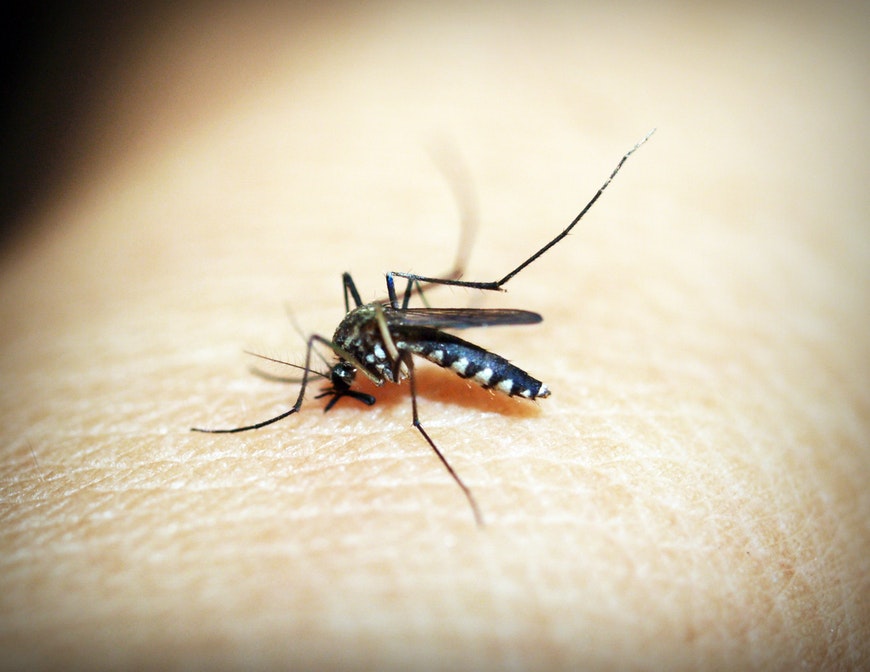
Overview
Malaria is a disease that is caused by a parasite. The parasite is transmitted through the bites of infected mosquitoes to humans. People who contract malaria usually feel very ill, with shaking chills and a high fever. About 210 million people are infected with malaria, and about 440,000 people die annually from this disease. Most of the people who end up dying from malaria are young children in Africa.
While malaria is uncommon in temperate climates, it is still a common in subtropical and tropical countries. World health officials are working to reduce the incidence of malaria by distributing bed nets to protect individuals from mosquito bites while they sleep. There are scientists worldwide trying to develop a vaccine for malaria prevention.
If you travel to locations where malaria is common, you can take steps to prevent malaria such as: using insect repellants, wearing protective clothing, and sleeping under treated mosquito nets. Depending on what area you’re visiting and your individual infection risk factors for infection, you may also want to take preventative malaria medication before, after, and during your trip. Many malaria parasites have grown resistant to the most common drugs used to treat the disease.
Symptoms
Malarial infection is usually characterized by the following signs and symptoms:
- Nausea and vomiting
- Chills
- Muscle fatigue and pain
- Fever
- Headache
Other signs and symptoms may include:
- Chest or abdominal pain
- Cough
- Sweating
In some cases of malaria, people with the disease experience cycles of malaria “attacks”. An attack usually starts with shivering and chills, followed by a fever, and then sweating and a return to normal temperature. Malaria symptoms and signs typically start within a few weeks after you’re bitten by an infected mosquito. However, there are types of malaria parasites that could lie dormant in your body for up to a year.
Causes
Malaria is caused by a kind of microscopic parasite. The parasite most commonly gets transmitted to people through mosquito bites.
Mosquito transmission cycle
- Uninfected mosquito. A mosquito will become infected by feeding on a person who has already contracted malaria.
- Transmission of parasite. If this mosquito bites someone in the future, it can pass on the malaria parasites.
- In the liver. After the parasite has entered your body, they travel to your liver. Some types of these parasites can lie dormant for up to 1 year.
- Into the bloodstream. When the parasites mature, they will leave the liver to infect your red blood cells. This is usually when people develop the symptoms of malaria.
- On to the next person. If, at this point in the cycle, an uninfected mosquito bites you it will become infected with your malaria parasites. It can then spread them to the other people it bites.
Other modes of transmission
Because the malaria causing parasites affect red blood cells, individuals can also catch malaria from exposure to infected blood, including:
- Through blood transfusions
- By sharing needles used to inject drugs
- From mother to unborn child.
Diagnosis
In order to diagnose malaria, your doctor will usually review your medical history, order blood tests, and conduct a physical exam. Blood tests are the only way to properly confirm a malaria diagnosis. Certain blood tests can assist your doctor by showing:
- Which kind of malaria parasite is causing your symptoms
- If your infection is caused by a parasite resistant to certain drugs
- The presence of the parasite in the blood, to confirm that you have malaria
There are other blood tests which help determine whether the disease caused any serious complications.
Depending on the blood test it can take several days to complete, while others are able to produce results in less than 15 minutes.
Treatment
Malaria medications are used to kill the parasite. There are different malaria medications that can be used. Which one you’re prescribed depends on:
- The severity of your symptoms
- Whether you’re pregnant
- Which type of malaria parasite you have
- Your age
Medication

The most common anti malaria medications include:
- Artemisinin-based combination therapies (ACTs). ACTs are, in many cases, the first choice of treatment for malaria. There are several different kinds of ACTs. Examples include artemether-lumefantrine (Coartem) as well as artesunate-amodiaquine. Every ACT is a combination of two or more medications that work against the malaria parasite in various different ways.
- Chloroquine phosphate. Chloroquine is the preferred treatment for malaria parasites that are sensitive to the drug. However, in many parts of the world, the parasites are resistant to this malaria medication. This has rendered chloroquine ineffective in these areas.
Other common malaria medications include:
- Quinine sulfate with doxycycline (Monodox, Qualaquin, Vibramycin)
- Mefloquine
- Combination of atovaquone and proguanil (Malarone)
- Primaquine phosphate
This information is not medical advice and should not be taken as such. Always talk to your doctor if you think you have contracted a disease or condition and ask their advice as they are most suited to help you with your personal medical needs. This is a summary intended for purely informational purposes.


